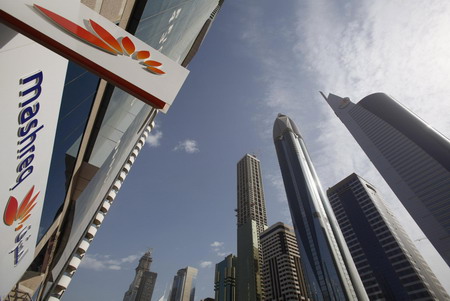Global General
Dubai debt meltdown - another financial crisis?
(Xinhua)
Updated: 2009-11-29 21:50
BEIJING: Dubai, an oasis in the Persian Gulf, has woken up to a debt crisis of its state-owned investment flagship Dubai World, a firm known for its slogan -- "The Sun Never Sets on Dubai World."
The state-owned conglomerate in the United Arab Emirates Wednesday asked for a delay in repaying some of the $60 billion it owes to creditors, causing panic and concerns across the world.
Has the sun set on Dubai World? Will the crisis hamper the world economic recovery and spill over to the global financial sector? Or will it trigger another economic meltdown?
Risks: small or big?
Amid fears that Dubai World could delay its massive debt payments and shock waves around the world's already brittle stock markets, the world leaders played down the troubles and showed their confidence in global economy.
"The world financial system is stronger now and able to deal with the problems that arise," he added.
French Prime Minister Francois Fillon said the Gulf had the resources to ensure the world would not sink into a second round of turmoil.
Their words were echoed by Sheikh Ahmed Bin Saeed al Amktoum, chairman of Dubai's Supreme Fiscal Committee, who said that "the government is spearheading the restructuring of this commercial operation in the full knowledge of how the market would react."
However, some analysts voiced their concerns over Dubai's stance to downplay its financial predicament, saying that a lack of details on the crisis would raise concern over the problem.
Likewise, many heavyweight investment institutions also cast doubts on the current default by warning that the Dubai debt might be over $80 billion. Some observers even dubbed this scenario "financial crisis 2."
Following the Dubai World's announcement, Standard & Poor's downgraded its ratings of several Dubai government-related entities.
A Saudi economist said "it is a very serious and severe problem that is likely to shake up the Gulf financial system as a whole."
Dubai vision: gains or losses
In "My Vision," a book written by Sheikh Mohammad bin Rashed al-Maktoum, the Dubai ruler depicted his dream that Dubai, always seeking for innovation, would become a world economic center.
But the debt crisis would almost wreck his dream.
With a rapid development drive, Dubai, a tiny emirate, has in recent years transformed itself into a regional financial and tourist center.
Unlike its oil-rich neighbors, Dubai adopted a different path of development, where the skyrocketing buildings and the masses of foreign workers it employs serve as witnesses.
Instead of naming it the beginning of a new financial turmoil, a US consulting company said in its report the latest crisis was an overdue burst of assets bubbles.
Nevertheless, many believed Dubai's growth mode was still recommendable as it had made a good use of its geological advantages and successfully spurred up its economy.
Some held that such problems were inevitable in Dubai's economic transformation. Kit Juckes, chief economist of the London-based currency trading group ECU, called it a "one-off bubble" since "nowhere else has there been so much extravagant construction."













